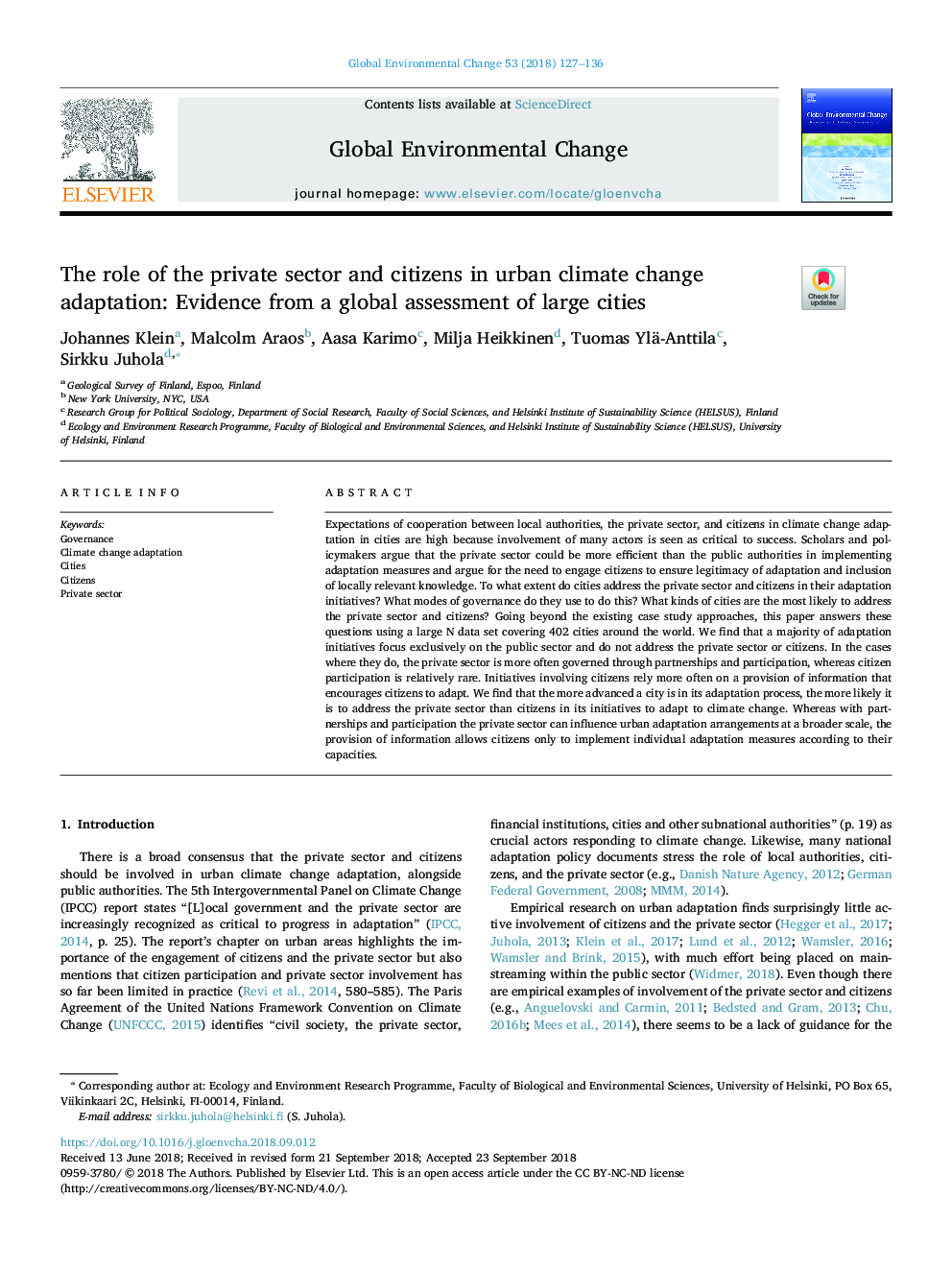| Article ID | Journal | Published Year | Pages | File Type |
|---|---|---|---|---|
| 11027532 | Global Environmental Change | 2018 | 10 Pages |
Abstract
Expectations of cooperation between local authorities, the private sector, and citizens in climate change adaptation in cities are high because involvement of many actors is seen as critical to success. Scholars and policymakers argue that the private sector could be more efficient than the public authorities in implementing adaptation measures and argue for the need to engage citizens to ensure legitimacy of adaptation and inclusion of locally relevant knowledge. To what extent do cities address the private sector and citizens in their adaptation initiatives? What modes of governance do they use to do this? What kinds of cities are the most likely to address the private sector and citizens? Going beyond the existing case study approaches, this paper answers these questions using a large N data set covering 402 cities around the world. We find that a majority of adaptation initiatives focus exclusively on the public sector and do not address the private sector or citizens. In the cases where they do, the private sector is more often governed through partnerships and participation, whereas citizen participation is relatively rare. Initiatives involving citizens rely more often on a provision of information that encourages citizens to adapt. We find that the more advanced a city is in its adaptation process, the more likely it is to address the private sector than citizens in its initiatives to adapt to climate change. Whereas with partnerships and participation the private sector can influence urban adaptation arrangements at a broader scale, the provision of information allows citizens only to implement individual adaptation measures according to their capacities.
Related Topics
Life Sciences
Environmental Science
Environmental Science (General)
Authors
Johannes Klein, Malcolm Araos, Aasa Karimo, Milja Heikkinen, Tuomas Ylä-Anttila, Sirkku Juhola,
